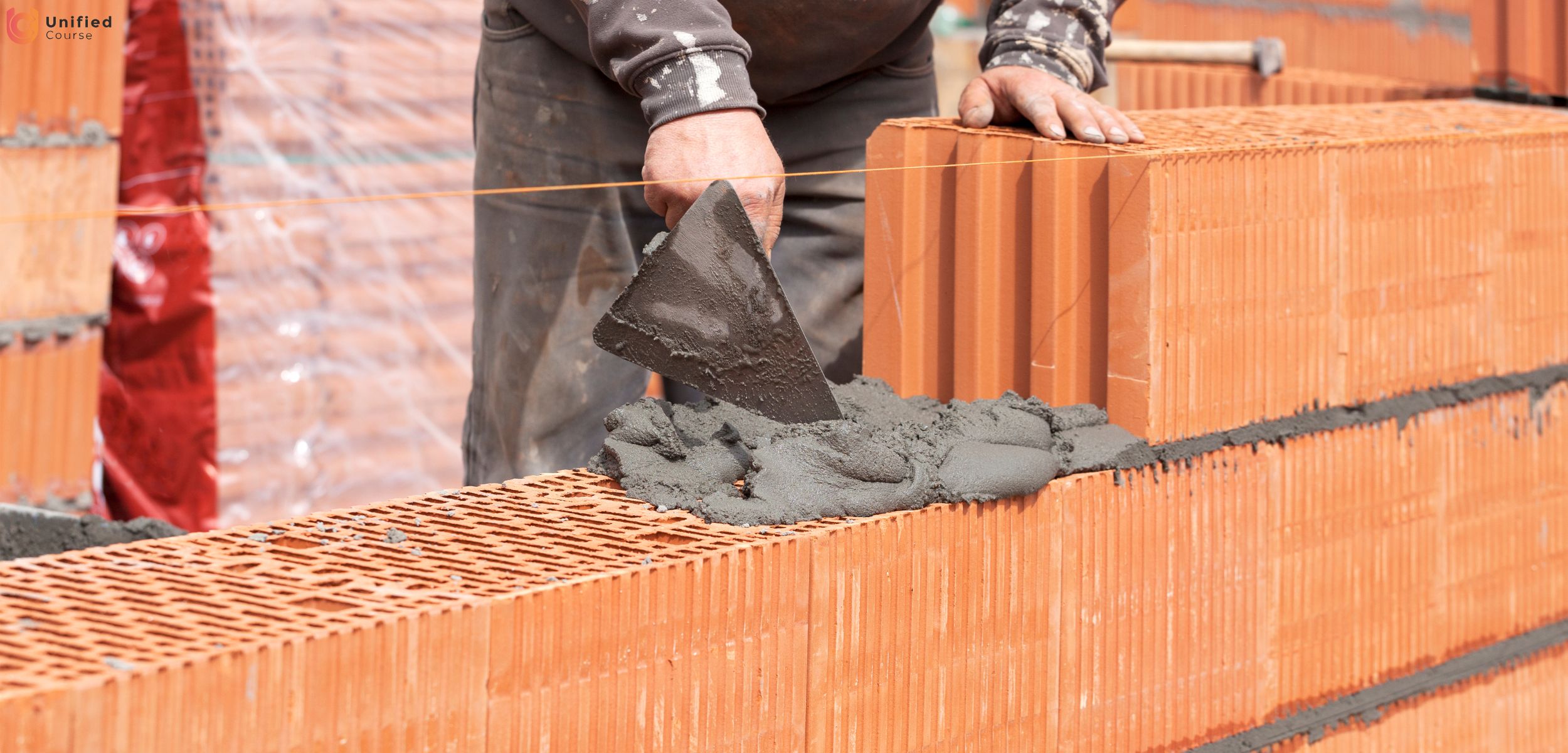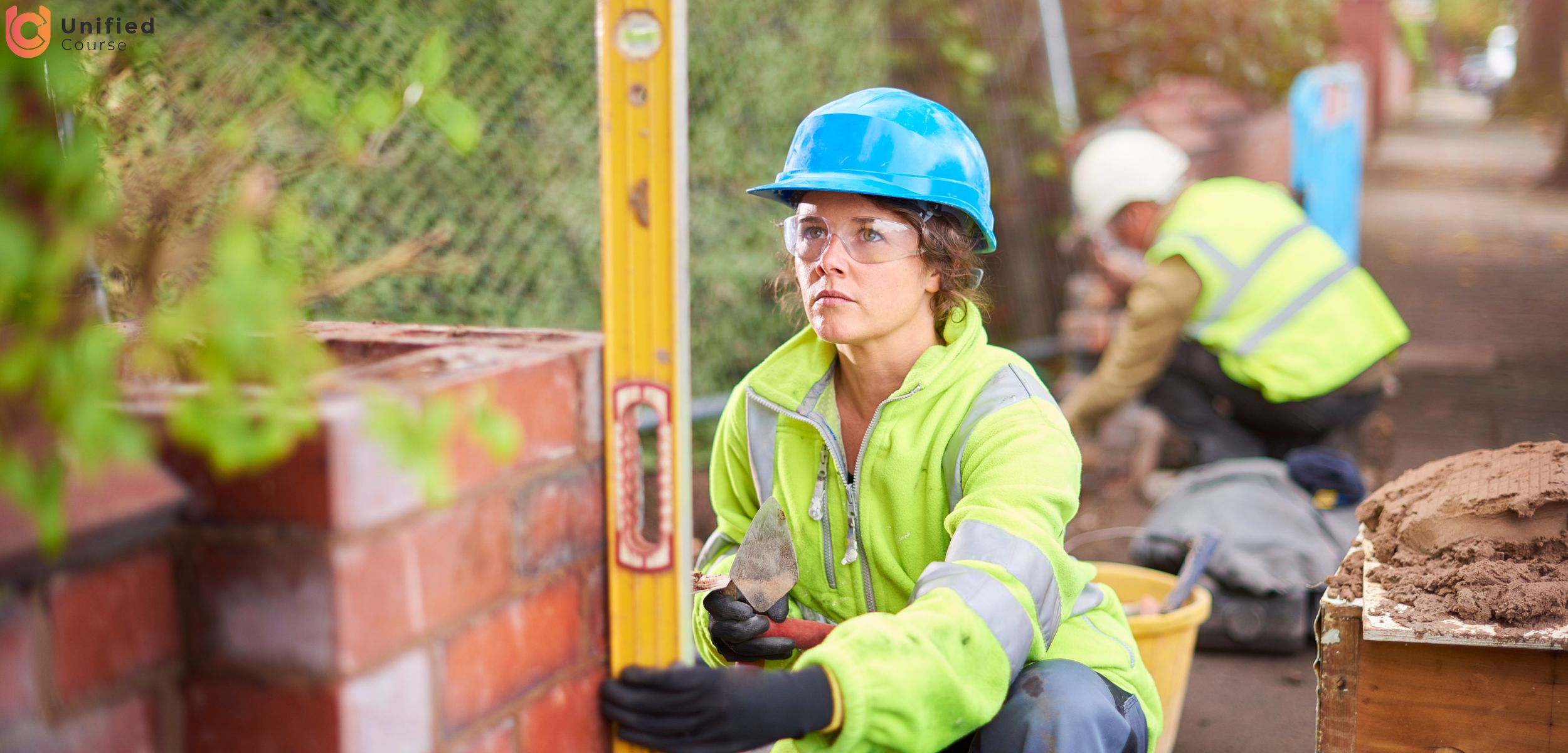What makes bricklaying such an appealing trade for so many people? For many, it’s the combination of hands-on work and the opportunity to earn a solid income. But how much do bricklayers actually make? If you’ve ever been curious about the financial rewards of this skilled trade, you’re in the right place. In this blog, we’ll break down bricklayers’ earnings, exploring how factors like skill level, location, and demand influence their pay.
What Factors Affect Bricklayer’s Earnings?
To understand how much bricklayers earn, it is important to consider various factors. Their salary can vary depending on experience, geographic location, type of employer, and the scale of the project. Let’s explore these factors in more detail:
- Experience Level: Beginners in the bricklaying industry, often called apprentices or trainees, earn less than experienced professionals. However, as they gain skills and knowledge, their pay rises accordingly. Advanced techniques and efficiency often lead to higher wages.
- Location: Where a bricklayer works also affects their earnings. In larger cities, wages are typically higher to match the cost of living. For example, bricklayers in London often earn more than those in rural areas.
- Employer Type: Working directly for a construction company may come with stable pay, while freelance bricklayers have more potential to negotiate their rates. However, self-employed individuals may face periods of low demand.
- Specialisation: Bricklayers who specialise in unique or complex tasks, such as restoration work or decorative bricklaying, can demand higher pay. Their niche skills often make them more valuable to certain projects.
How Much Do Bricklayers Earn in the UK?
The earning potential for bricklayers in the UK varies depending on experience and skill level. Here’s a breakdown of what you can expect at different stages of your career:
- Apprentices: Beginners typically start at around £18,000 to £22,000 annually. These figures may seem modest, but the training period equips them with skills that lead to much higher pay in the future.
- Mid-level bricklayers: Those who are experienced, earn somewhere between £30,000 and £40,000 per year, depending on their efficiency and the scale of their projects.
- Highly skilled or specialised bricklayers: Highly experienced people can make upwards of £50,000 or more annually, particularly in areas with strong demand for their skills.
How Much Can a Self-Employed Bricklayer Earn?
Self-employed bricklayers often have the chance to earn more than those who work for a company. By setting their own rates and taking on different projects, they can increase their yearly income. Daily rates for self-employed bricklayers usually range from £150 to £200, depending on the job’s difficulty and location. As a result, if they work regularly, they could earn between £40,000 and £60,000 or more each year.
Moreover, in high-demand areas such as big cities or places with many building projects, earnings can even go over £70,000 annually. However, it’s important to remember that self-employed bricklayers have to pay for their own business costs, like tools, insurance, and transport. These costs can reduce the money they take home, so they need to consider these expenses when thinking about their earnings.
What Is the Average Hourly and Day Rate for a Bricklayer?
Bricklayers in the UK usually earn between £15 and £25 per hour, but this can change based on experience, location, and the difficulty of the job. Additionally, hourly rates can vary depending on things like the employer’s budget or project deadlines, with short-term, high-pressure jobs often paying more.
In terms of day rates, which is 8 hours per day, they usually earn between £120 and £200 per day. However, specialists or freelance bricklayers may charge more daily for complex projects. Moreover, day rates are often used by self-employed bricklayers because they offer more flexibility in managing work and negotiating pay.

How to Increase Your Earnings as a Bricklayer
If you are looking to boost your bricklaying income, here are a few strategies:
- Gain Additional Skills: Learning new techniques or specialising in areas like restoring old buildings can make you more valuable as a bricklayer. As a result, this can help you get better-paying jobs and stand out from others in the industry.
- Network with Industry Professionals: Building relationships with other people in the construction industry can lead to more job offers or higher-paying projects. Moreover, a strong network can also help you learn about new opportunities and trends in the field.
- Consider Freelancing: Freelancing lets you choose the jobs you want and set your own rates. Although it takes some business skills, freelancing can give you more control over your work and the chance to earn more money.
- Work in High-Demand Areas: Moving to areas with more construction work can help you earn more. In fact, places with a lot of building projects often pay better because there’s a higher demand for skilled workers.
Frequently Asked Questions (FAQs) About Bricklaying
As with any profession, there are some common questions people have about bricklaying. So, here are answers to a few frequently asked questions:
Can bricklayers earn more in big cities?
Yes, they tend to earn more in cities like London due to the higher demand for construction work and the increased cost of living. Day rates and annual salaries are often 10% to 20% higher than in rural areas.
How reliable is bricklaying as a career?
Bricklaying offers steady work, as construction remains a vital industry. However, economic fluctuations can impact demand. Diversifying skills and staying updated with industry trends can help maintain consistent employment.
Do bricklayers receive benefits if employed?
They often receive benefits such as holiday pay, sick leave, and pensions. On the other hand, self-employed individuals need to account for these on their own.
Is there room for career progression?
Yes, bricklayers can advance to supervisory roles, start their own construction businesses, or specialise in areas like building conservation. These roles often come with higher pay and responsibilities.
Conclusion
Bricklaying offers strong earning potential, with pay depending on factors like experience, location, and whether you’re self-employed. Apprentices may start on a lower salary, but experienced bricklayers can earn much more, especially in high-demand areas or specialised roles. Moreover, there are opportunities for career growth, such as moving into senior positions or starting your own business. By continuing to learn new skills and seeking work in high-demand areas, bricklaying can be a rewarding and stable career choice.
Ready to lay the foundation for a successful career? Enrol in Unified Course’s Bricklaying Training Course today! Our hands-on program gives you the skills and confidence to excel in this high-demand field.





